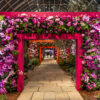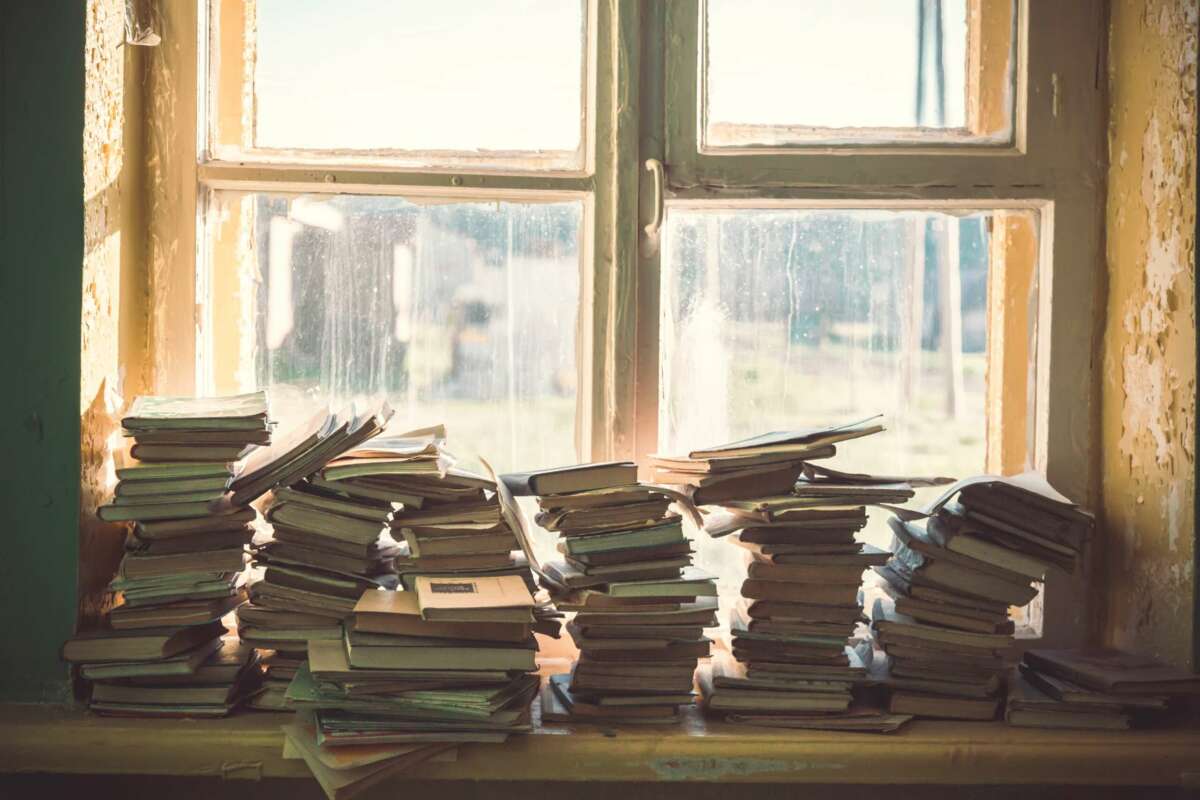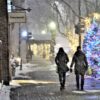We always include the BBC Proms in London on our list of the most important summer classical music festivals each year. We recently attended a marvelous performance, and it was an excellent reminder of why this wonderful annual concert series is cannot-miss if you love music. Or London. Or both.
Plus, if you’re pressed for time, you can catch a 7:00P performance and be out by 9:00P, making this an ideal addition to our Two Hours in London list, which is a collection of unique and authentic experiences that you can have a visitor to London even if you have only 2 hours to spare.
If you haven’t yet attended a BBC Proms concert in London, here’s a quick rundown on the annual series. Most of the performances are held at Royal Albert Hall, and the festival runs for 8 weeks, from mid-July to early September.
We suggest arriving early — when the weather is fine, the setting is lovely and the people-watching is outstanding. There are several restaurants and lounges within the Hall, all of which open for pre-performance meals 2.5 hours before the concert. But we decided to just hang out outside on the balmy summer evening that we were there.
You can view the comings and goings at the magnificent Albert Court, a residential building constructed in 1890 that has been home to many notables through the years – including Howard Carter, the man who unearthed the tomb of Tutankhamun.

Photo Credit: Dandelion Chandelier

Photo Credit: Dandelion Chandelier

Photo Credit: Dandelion Chandelier
It’s a vibrant neighborhood, with The Royal College of Music just across the street.

Photo Credit: Dandelion Chandelier

Photo Credit: Dandelion Chandelier
On a nice day, people stream through the plaza outside Royal Albert Hall. Some perch on the stone balustrade of Albert Court.

Photo Credit: Dandelion Chandelier

Photo Credit: Dandelion Chandelier
If you like, you can stroll over to the north side of the Hall and cross the street to Kensington Gardens. There you’ll find people clustered around the majestic Gothic Revival-style Albert Memorial, commissioned by Queen Victoria in memory of her husband Prince Albert, who died in 1861.

Photo Credit: Dandelion Chandelier
Royal Albert Hall itself a gorgeous space – the exterior is undergoing a multi-year renovation, but the interior is currently untouched and spectacular.
The BBC Proms are a beloved element of life in London: the final concert — the Last Night of the Proms – is a hugely popular Happening. It’s traditional that the crowd holds hands and sings Auld Lang Syne at the end, as a communal rite of passage from summer to fall (this year, the Last Night is Saturday, September 8).
There’s something special about this hall – it’s enormous, and yet it feels intimate and communal. The volunteers and staff are friendly and welcoming, and the dress code is “smart casual” – meaning, you can show up in shorts if you like. Come as you are, and be who you are.

Photo Credit: Dandelion Chandelier
That inclusive attitude makes for something special about this audience, too. For one thing, on a busy Tuesday night, the 5,000-seat space was completely full.
For a classical music concert.
Those who fear for the future of the performing arts should take great comfort from that – we saw all ages and backgrounds in the crowd, all keen to hear live classical music. Wow.

Photo Credit: Dandelion Chandelier
Another wonderful element of this experience? It’s not just for the affluent. For every BBC Proms concert at the Royal Albert Hall, up to 1,350 standing, or ‘Promming’ places are available on the day of the performance. A limited number are released online in the morning, and the rest are sold in person when the doors open. If you arrive early enough on the day of the concert, you have a very good chance of getting in.
These standing-room seats cost £6 each (the hard copy of the programs at each performance cost £4, so you can practically see the concert for the price of a printed program). Some of these reduced-price seats are way up above in a high balcony near the roof, in the Gallery. But about 200 are located right in the center of the orchestra level, in the Arena. In that circular space, some people sit on the floor, but most stand. And they’re not all students or seniors. We saw people in blazers and suits who appeared to have come straight from the office, standing patiently throughout the waiting period before the music began, and then throughout the 2-hour performance. How. Great. Is. That?
Even the best seats in the house are surprisingly affordable compared to New York City. Our seat in the second row of the orchestra section was £43 – compare that to the price of a Broadway show ticket, and a Proms performance turns out to be a relatively affordable luxury.
And it was a luxurious experience.
It was pure serendipity, but the performance we attended, Proms 22, was devoted to London –Andrew Manze and the BBC Scottish Symphony Orchestra were the featured artists. What could be better for tourists like us than that?
There were two works on the program. The first was Joseph Haydn’s final symphony, Symphony No. 104 in D major, “London,” which was composed and first performed in London during the composer’s second residency. He wrote 12 “London” symphonies expressly for the concert-going public in the late 18th century. The result is a crowd-pleasing composition perfect for the month of July. The piece was fresh, light and breezy, just like the day itself, and left everyone feeling jolly and a bit giddy.
At intermission (or as the Brits call it, “the interval,”) the crowd buzzed and chattered. There are ample opportunities to purchase snacks and drinks, and the break is sufficiently long (20 minutes) for a glass of champagne or two. We had one ourselves, just to be sure (all in the interest of research, of course). It’s definitely doable.
We were already in a fine mood when the intermission ended. And then the second work began. And it was transcendent.
First performed in March 1914, Ralph Vaughan Williams’s A London Symphony (Symphony No. 2) is meant to evoke the sounds, the energy and the changing moods of the city. The work begins quietly, with serene notes that made us think of mist on the water – perhaps dawn on the Thames. It went on to capture the cacophony of London – the horns of the ships and barges, the traffic, the crowds, the cries of the sellers in the market. The programming notes explain that the music “evokes the chimes of Westminster, a chilly November afternoon in Bloomsbury and the bright lights of the Strand in a city that would soon be scarred by war.”
It’s nearly an hour-long piece, and we didn’t move the entire time. The closing bars are as quiet and still as the opening, evoking again the Thames, but this time under shimmering stars at night. There’s a pronounced pause at the very end of the work.
The conductor — in a finely calibrated, precise and elegant manner — held the silence in the palm of his hand for what felt like a very long time.
And no one made a sound.
It’s a major achievement to bring 5,000 people to their feet to applaud the performance of a complex piece of music. But we think it’s even more masterful to get 5,000 individuals to be so intent on listening – so mesmerized by the quality of the performance – that they are utterly silent.
You could have heard a pin drop in the final minute of the performance. It seemed as if none of us was breathing. The music was impressive. But the silence was absolutely sublime.
That moment of suspended animation was broken by thunderous applause, stomping feet and shouting. It went on for several minutes, and it still didn’t seem like enough. How do you adequately respond to such a virtuoso performance?
We left with the theme of the second piece playing in our heads, and laughed aloud as someone next to us on the way out started humming it under his breath.
It was that kind of performance. It was that kind of night. We emerged to find that the sun was just setting, casting everything around us in a golden glow.

Photo Credit: Dandelion Chandelier

Photo Credit: Dandelion Chandelier

Photo Credit: Dandelion Chandelier
The night was really just getting started, and all of London awaited us.
If you want to mark your calendar, the program and ticket-buying procedures for the BBC Proms each year are generally announced in April, while the tickets usually go on sale in May.
You won’t be sorry. We’ll see you there.








